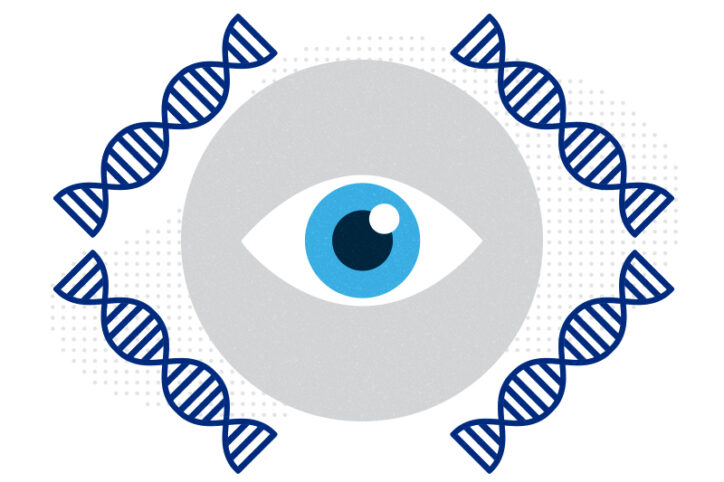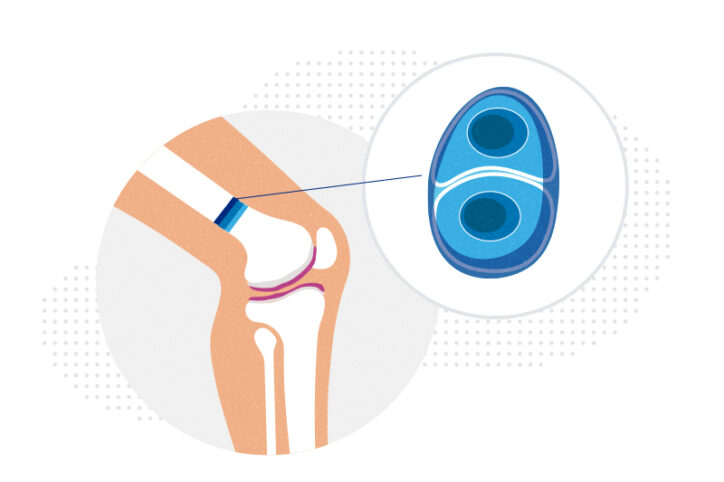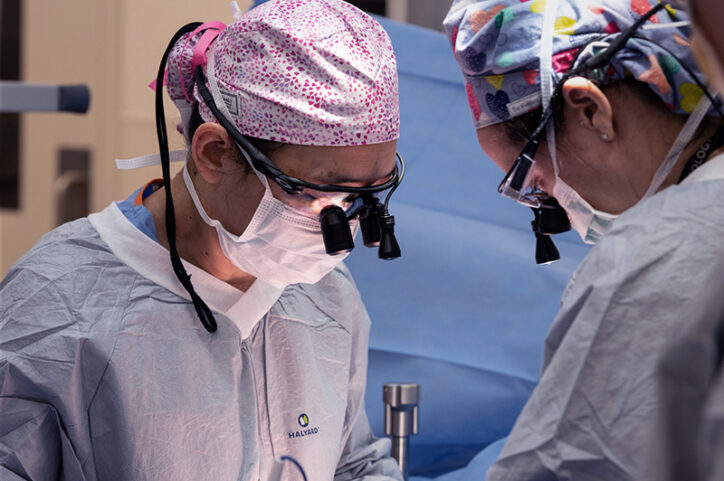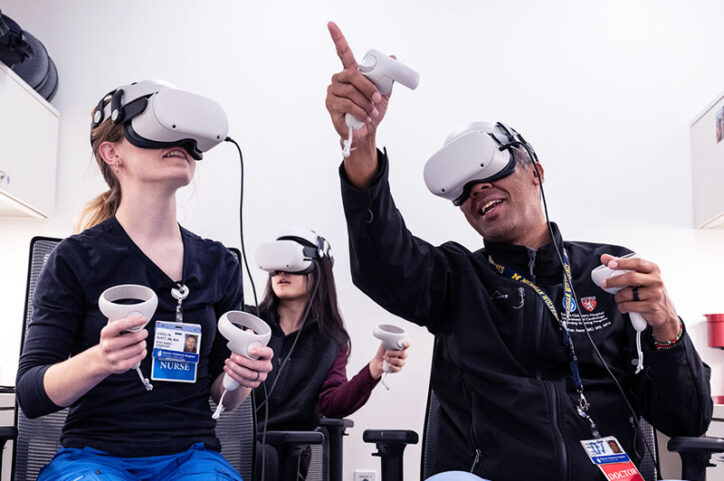Archive for research
Genetic variants are found in two types of strabismus, sparking hope for future treatment
Determining how genetics contribute to common forms of strabismus has been a challenge for researchers. Small discoveries are considered meaningful progress. Boston Children’s researchers believe they’ve helped move the needle. They discovered that two types of strabismus — esotropia and exotropia — may have shared genetic risk factors. Duplications on the second, fourth, and tenth chromosomes that ... Read More about Genetic variants are found in two types of strabismus, sparking hope for future treatment
Tagged: genetics and genomics, ophthalmology, research, strabismus
Could SIDS be caused by unrecognized brain infections?
Some infants who pass away from sudden infant death syndrome (SIDS) are known to have had acute minor infections. Could these have played a role in their death? Using next-generation molecular tools, a new study provides evidence that undiagnosed inflammation and occult infection can contribute to SIDS and the brainstem pathology seen in some infants. ... Read More about Could SIDS be caused by unrecognized brain infections?
Finding ways to reduce the financial and social costs of pacemakers
As the number of complex heart operations has increased over the years, so have cases of postoperative heart block, a form of arrhythmia that often requires a pacemaker and more surgery. Heart block occurs when unseen conduction tissue — the cells and electrical signals that control the beating of a heart — is injured. It is a ... Read More about Finding ways to reduce the financial and social costs of pacemakers
When diagnosis is just the first step: The Brain Gene Registry
Through advances in genetic sequencing, many children with rare, unidentified neurodevelopmental disorders are finally having their mysteries solved. But are they? “Once families receive results of genetic testing, that’s just the beginning of a new journey,” says Maya Chopra, MBBS, FRACP, an investigator with the Rosamund Stone Zander Translational Neuroscience Center at Boston Children’s Hospital. ... Read More about When diagnosis is just the first step: The Brain Gene Registry
Ductus arteriosus stenting could help severely ill infants with pulmonary arterial hypertension
Treatment for infants who have severe pulmonary arterial hypertension (PAH) is sometimes limited. Because they haven’t physically matured, a procedure could increase the risk of serious complications, including failure of the heart’s right ventricle. A Boston Children’s Department of Cardiology study found an interventional therapy that’s potentially safe and suitable for those critically ill small infants: the placement of ... Read More about Ductus arteriosus stenting could help severely ill infants with pulmonary arterial hypertension
Tagged: cardiology, pulmonary hypertension, pulmonology, research
Researchers identify genes that could affect children’s bone growth
Many children anticipate reaching the next number on a measuring stick as they chart their growth. But measurements can be frustrating or stressful for children who have skeletal disorders that prevent bones from growing. Key findings Researchers used genome-wide association studies and CRISPR gene editing to see if alterations to cartilage cells, which are known ... Read More about Researchers identify genes that could affect children’s bone growth
Tagged: gene editing, genetics and genomics, research
Engineered cartilage could turn the tide for patients with osteoarthritis
About one in seven adults live with degenerative joint disease, also known as osteoarthritis (OA). In recent years, as anterior cruciate ligament (ACL) injury and other joint injuries have become more common among adolescent athletes, a growing number of 20- and 30-somethings have joined the ranks of aging baby boomers living with chronic OA pain. ... Read More about Engineered cartilage could turn the tide for patients with osteoarthritis
Tagged: acl, orthopedics, research, sports medicine
Surgery beats sclerotherapy for rectal prolapse in children ages 5 and older
Rectal prolapse — the protrusion of the lining of a child’s rectum through the anal sphincter — can occur for many reasons. In the pediatric population, it most commonly occurs in children under 4 years old but can affect older children as well. Children with colorectal and pelvic malformations tend to be at increased risk ... Read More about Surgery beats sclerotherapy for rectal prolapse in children ages 5 and older
Helping aspiring clinicians understand a virtual heart before they work with a real one
Jonathan Awori, MD, MS, MFA, isn’t embarrassed to say it took him a long time to completely understand the intricate workings of the heart. He says he isn’t alone; many aspiring doctors and nurses don’t immediately grasp the heart’s complexity from two-dimensional textbooks or even 3D-printed models. Now that he’s a pediatric cardiology fellow at ... Read More about Helping aspiring clinicians understand a virtual heart before they work with a real one
New hospital discharge practices could improve health of infants with bronchopulmonary dysplasia
The chronic lung disease bronchopulmonary dysplasia (BPD) affects a significant number of infants who were born early and have underdeveloped lungs. They typically require lengthy specialized care in a neonatal intensive care unit (NICU) before they can go home with their families. But getting home doesn’t mean health risks are behind them. Their parents are suddenly their ... Read More about New hospital discharge practices could improve health of infants with bronchopulmonary dysplasia
Tagged: bronchopulmonary dysplasia, pulmonology, research











